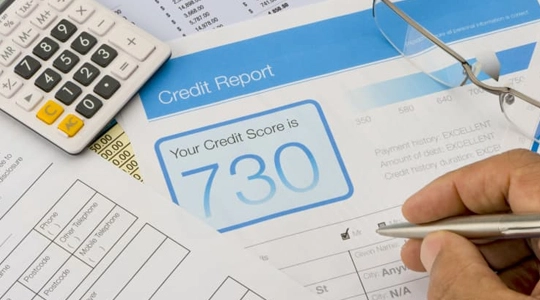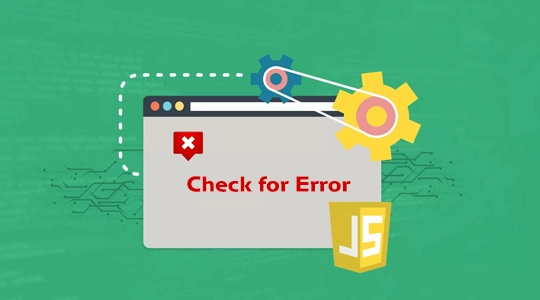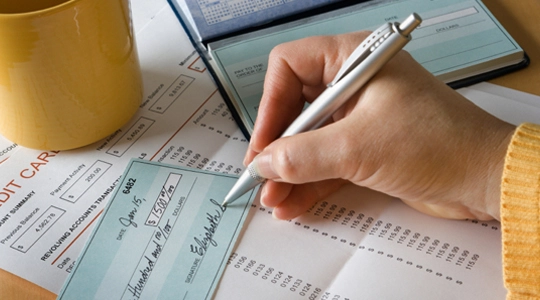How to Fix Your Credit Score: This paper presents a complete guide on everything related to the matter at hand.
Having a bad credit score is very costly to one’s lifetime earnings and it is therefore important that this be prevented at all costs. Sometimes, having a low score may affect your ability to get a loan, credit card, mortgage, or even a dwelling. Now they need to know more about how to fix credit to improve your financial life. This guide defines actions that you need to take right now.
Why Credit Score Matters The Most
A credit score is a three digit number that can tell a lender about your appropriateness to borrow money. The more points you have, the better rates on the financial operations you can receive. By fixing your credit you can: By fixing your credit you can:
- Obtain credit cards with unbeatable rewards or zero percent interest rates for the first few months
- Reduce regular spending on automobiles and other financial products such as auto loans, mortgages, and so on.
- Raising your chances of being approved for more places to rent and not necessarily needing a co-signer and or two months advance deposit.
- By using land, people can get better deals on insurance, cell phone services, and a lot more.
- Increase the accumulation of personal savings through the availability of better terms and lower rates
Whether your concerns are business related or simply personal, a sound credit history is well on the way to the freedom of choice. This is why you should not wait any longer to fix your credit history, as it is important for your future financial stability.
4 Crucial Stages to Help to Rebuild Credit Rating
Well, regretfully, there are no ways to become an over-night credit score genius; however, while making consistent and steady steps, you can start the process of improving your credit score. Learn how with these key tactics: Learn how with these key tactics:
1. Check credit reports and, if there is inaccurate information, file a complaint.
Your first step should be to check the credit reports for accuracy or perhaps errors. You can request one free copy from each of the three major credit bureaus that provide credit reports. Reread every line of each report in the accounts and inquiries for several times. Dispute any errors that you notice concerning account details, late payment, balances due or any other financial aspect that may have been messed up during the report generation process.
There is often a lot of gained from doing corrections as this will help to push your score up. The last tip that one should consider in writing dispute letters should be professionally written, ensure that you attach copies of any evidence you possess which can support your claim, and if the company does not respond appropriately you should take your concern to the management team until the issue is fully resolved.
2. By paying down balances and lowering the credit utilization ratio, one is making strides towards credit repair.
There are many tips on how to increase your score but one of the most effective is to reduce your credit utilization ratio. This calculation lets you know your credit at the amount of credit that is available to you at a given time. It is advisable to keep the utilization below 30% depending on the amount approved by the credit card issuer. For each credit card, aim to do the least balance possible in the month. Balancing your cards may require cutting spending on other things, but it is one of the most effective ways of raising up the score.
3. Become an Authorized User
Consider requesting someone you know who maintains good credit—such as a relative or friend—to be your reference and include you as an authorized user of one or more of their credit cards. When you register to become an authorized user, credit history of the primary account holder is reported to your credit reports. This is because any of the seven categories used by the F&PI to rate their good standing can greatly enhance your score.
It will all depends on how you are able to go about your request, just be smart about it. Ideas for asking them include, you should ideally ask somebody who has longstanding credit accounts on his credit report and who maintains a good credit standing. Ensure that they always meet their bills’ payments deadline so that no further negative entries are reported in the credit history in future.
4. New positive credit builds up over time of credit operations or in simple terms, credit history.
After dealing with the shallow or easy cures, try to promise yourself that you will start gradually filling in more positive info in your file. However, do not take this opportunity to apply for too many new credits, as it can harm you instead. It is important not to open a single credit card or other line of credit for at least 6-12 months with your other cards.
New credit should be managed responsibly and should not have any balances that remain carrying over to the next billing cycle and the utilization should be kept low. Every new account will add to the total length of credit history and further reduce the credit utilization ratio – things that are considered when determining credit scores.
Financial Planning: Taking Steps to Get Your Money Under Control
Credit score improvement in its essence is all about gaining insights into the factors that contribute to your score and ultimately, making smarter financial decisions for life. It is also noteworthy that even if you have suffered certain setbacks in the process of competing for a particular position, you can gradually restore the lost rating. If you want more detailed information about credits, you can view on our credit resources page that will help you achieve your credit goals more efficiently.
It is not the time to wait for things to happen but instead, it is the time to act and make something out of your financial life. Review your credit reports, challenge adverse information, use credit wisely and build a favorable record. While working towards achieving this, it is important to ensure that you are diligent and committed in the process of building a good credit score.
How to Repair Credit Fast?
To repair your credit fast, start by checking your credit reports from all three major bureaus for errors and dispute any inaccuracies you find. Pay down high credit card balances to lower your credit utilization ratio, aiming to keep it under 30%. Make all future payments on time, as payment history is the biggest factor in your credit score. If you have accounts in collections, consider negotiating a "pay for delete" agreement to remove negative marks. Becoming an authorized user on a responsible person’s credit card can also quickly boost your score. Additionally, avoid opening too many new accounts at once, as multiple credit inquiries can lower your score. Consider using a secured credit card or a credit-builder loan to add positive payment history. Staying consistent with these actions can lead to noticeable improvements in your credit score within a few months.
How to Fix My Credit Fast?
To fix your credit fast, start by pulling your credit reports and reviewing them for any errors or outdated information. Dispute any inaccuracies with the credit bureaus to quickly remove incorrect negative items. Pay down your credit card balances to reduce your credit utilization, aiming for below 30% of your total credit limit. Always make all payments on time moving forward, as timely payments have a major impact on your score. If you have accounts in collections, try negotiating a pay-for-delete agreement. Becoming an authorized user on a trusted family member’s credit card can also give your score an instant boost. Avoid applying for new credit unless absolutely necessary to prevent hard inquiries. Consider opening a secured credit card or a credit-builder loan if you need to add positive payment history. By taking these focused steps, you can start seeing significant improvements in your credit score within a few months.
Call for a FREE credit report consultation
Best 7 Steps to Fix your Credit Score
When it comes to personal finances, we appreciate that most people don’t want to share their problems. This is understandable because no one wants to go around talking about their poor credit score. If you have just typed “how to fix my bad credit myself,” this is where you will get reliable help. Our Credit Repair Ease resources will help you get back on your footing to enjoy the benefits that come with good credit rating. Below are steps to fix credit score fast:
Get Free Credit Report:
Get a free credit report from TransUnion, Equifax or Experian and soft through it to identify any errors. Make sure you understand all the debt and if there are any mistakes, seek prompt clarification from the listed creditors by disputing the entry.


Check for error:
Keeping a close eye on your credit reports is the best way to find and fix errors. You can monitor your credit reports by requesting a free credit report from each of the three bureaus (Equifax, Experian and TransUnion) once a year.
Pay your bills on time:
35% of your credit score pertains to debt repayment history. If you want to repair your poor credit score, it is time to plan on repaying your debts on time to avoid notifications going to the credit reference bureaus.


Credit Card Utilization:
You need to lower the credit card utilization. The amount of revolving credit you have versus how much you’re using affects your credit score in a big way. Lower this percentage to an optimum level of 30% or lower.
Reduce your credit cards:
If you're carrying around multiple credit cards, it's time to cut back. Having too many credit cards can negatively impact your credit score and leave you vulnerable to financial instability.


Only apply for credit when you need it:
Before you get another credit card, ask yourself, “Do I need it?” This is the best tip on how to fix credit score. Avoiding new credit cards or loans reduces the number of inquiries on your credit report and improves your score.
Pay off debt rather than moving it around:
It's a common misconception that you can't do anything about your debt if you can't afford to pay it off in full. However, there are actually a few different strategies you can use to pay down your debt, even if you're on a tight budget. One of the most effective ways to do this is by transferring your balances to a 0% APR credit card. This will help you save on interest and get out of debt faster.

Frequently Asked Questions
(1) How can I fix my credit on my own?
Fix Your Credit in Following Steps
Get a copy of your credit report and your credit score.
Fix errors on your credit report.
Build a good credit history and keep your credit accounts healthy.
Maintain a balanced debt-to-credit ratio.
Review the age of your credit accounts.
(2) Can you fix really bad credit?
The answer might surprise you! There are many different things that can affect your financial standing, but if you're willing to put in the work, there's a way out! We'll talk about strategies on how to get better scores as well as other tips on improving your financial situation overall.
(3) How long does it take to fix your credit score?
In general, credit repair takes about three to six months to resolve all of the disputes that the average consumer needs to make. Of course, if you only have a few mistakes to correct or you repair your credit every year, it may not take as long; you might be done in just over one month.
(4) How do I clear my bad credit history?
There are several ways that can help with clearing your debt and getting back on track your credit.
-The first method is by asking creditors to remove late payments from your history, which will raise your score if they agree.
-The second way is to set up an installment agreement with them so that you'll be paying off what you owe in monthly installments instead of one lump sum at the end of the month.
-The third method would be to pay off all outstanding balances before applying for new credit - this will also increase your score.
(5) How can I wipe my credit clean?
Cleaning your credit reports in following steps
Request your credit reports.
Review your credit reports
Dispute all errors
Lower your credit utilization
Try to remove late payments
Tackle outstanding bills
(6) How can I clean up my credit fast?
One fast way to potentially rebuild credit is to pay off high credit card balances. Creditors report your balances about once a month, usually around your statement billing date.